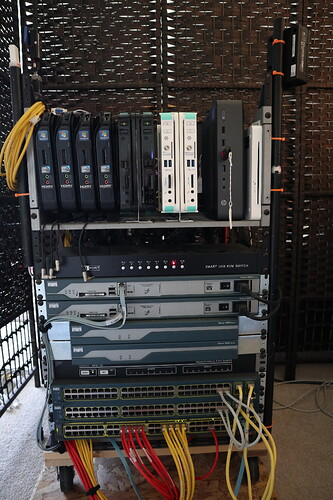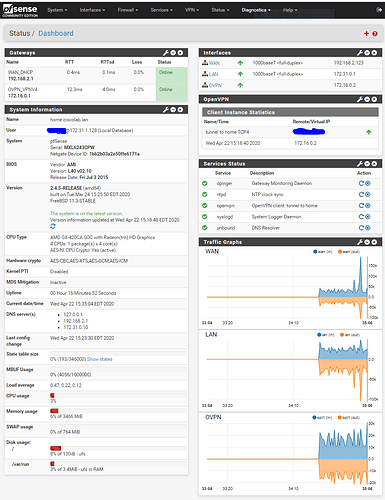Been watching the videos for a while and decided I would ask a question here. I’ve seen the same asked at the pfsense forums, and the answer is always the same, just don’t.
And since I started with pfsense on a box with one USB adapter, I certainly know why this is the answer. But times are different now and I’m hoping someone can help point the way.
At work I have a Supermicro server running now. With the current global problem, I’ve been forced to work from home as much as possible. So I tried putting some pieces together to build a site to site openVPN connection between my work network, and my home lab at home. At first I tried my GL AR750s pocket router since it supports some level of openVPN. Never did get it working, and one other person tried the same and gave up. Next choice was using an old Foxconn bookshelf computer that only has a single Ethernet connection. No vlans aren’t going to be the choice with the rest of the home network. Put a usb-ethernet on it for the lan side, and clamped a chunk of aluminum to the case for a heatsink. This worked fairly well at work when I had no choice, but I wasn’t pushing much throughput back then. Today after a couple weeks of running, I was watching the live stream and RDP into several computers when the connection locked up. Much messing around later and a different adapter and I’m back in service.
What I need is a decent USB adapter that has a compatible chipset and won’t overheat. Only advice on the pfsense forums is an AX8xxxx chipset adapter. If you have one you’ve been using really hard, let me know.
My home pfsense box has USB 2 and 3.0. My home connection is Spectrum, so my rates suck at around 70mbps down and a whopping 6mbps up. As you can see, speed issues from openVPN are not really a concern. And only traffic going to my work network goes across the VPN.

